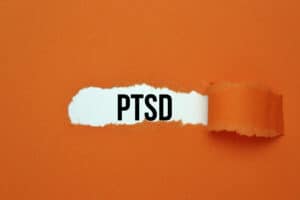Delray Beach, FL, Post-Traumatic Stress Disorder (PTSD) Treatment Center
Post-traumatic stress disorder (PTSD) is one of the most common mental health conditions in the United States. Recent studies cited by the U.S. Department of Veterans Affairs show that PTSD symptoms affect an estimated 13 million million Americans.(1) Though this condition is common, many Florida residents remain unaware of its symptoms and the treatment options available. The good news is that the Bishop Health mental health treatment center in Delray Beach, FL, can help.
If you or someone you love is living with PTSD or another mental health condition, contact Bishop Health today. Offering innovative and evidenced-based care delivered by an empathetic and licensed team of mental health professionals, Bishop Health offers a host of treatment solutions to fit the unique needs of each individual. Reach out today to learn more about treatment options and make mental health your top priority with Bishop Health.
What is Post Traumatic Stress Disorder (PTSD)?
PTSD develops within the brain after exposure to a traumatic event. Insights from the National Institute of Mental Health (NIMH) reveal that the brain will begin to develop PTSD-related symptoms as a safeguard against extreme or unpleasant sensations.(2) Events that may lead to the development of PTSD include violent personal assaults, natural or human-caused disasters, accidents, combat, and other forms of violence. PTSD develops when there is an inability to process or cope with these traumatic events. While most Americans will experience a traumatic event that could lead to PTSD, most people in these circumstances do not develop the condition.(1)
Types of PTSD
Different organizations categorize PTSD into various subtypes, with distinctions often made based on the severity of the traumatic exposure as well as the intensity of PTSD symptoms. The Department of Veterans Affairs identifies the following subtypes (among others):(3)
- Dissociative PTSD — This subtype includes prominent dissociative symptoms, such as incomplete integration of aspects of identity, memory, and consciousness.
- Complex PTSD — This type of PTSD comes as the result of multiple traumatic events. Though treatment modalities are the same, symptoms are typically more severe and require more intensive therapy than general PTSD.
Trauma & Causes of PTSD
PTSD is developed as the brain’s response to unprocessed trauma. When you are exposed to a traumatic event, your brain attempts to process the intense sensations it is experiencing. If these sensations become too much for your brain to handle, it will begin to develop safeguards against these sensations in the form of PTSD symptoms. Events that will often cause PTSD include:
- Serious accidents
- Physical or sexual assault
- Abuse, including childhood or domestic abuse
- Exposure to traumatic events at work, including remote exposure
- Serious health problems, such as being admitted to intensive care
- Childbirth experiences, such as losing a baby
- Death of someone close to you
- War and conflict
- Torture
Children are at an increased risk for developing PTSD when exposed to these events due to their lack of coping skills and limited ability to process trauma.
Signs & Symptoms of PTSD
Symptoms of PTSD can vary greatly in their severity. Some symptoms may go undetected while others may result in a debilitating impact on daily life. Symptoms will differ in their intensity based on the severity of exposure to trauma, the length of exposure, and your ability to cope. PTSD symptoms include:
- Re-experiencing symptoms — These symptoms include flashbacks, dreams, or recurring memories of a traumatic event along with the accompanying intense emotions.
- Avoidance symptoms — Avoidance includes intentionally avoiding people, places, and things that remind you of the traumatic event.
- Arousal or reactivity symptoms — Symptoms include being easily startled or constant feelings of tension.
- Cognition and mood symptoms — Anger and depressive symptoms can also be related to PTSD.
PTSD Outpatient Treatment at Our Delray Beach, FL, Mental Health Clinic
Bishop Health mental health treatment center in Delray Beach, FL, offers cutting-edge and evidence-based practices. Program participants receive an assessment, diagnosis, and individualized treatment plan all while under the care of a licensed mental health professional. Our various outpatient models allow clients to receive the treatment they need with limited disruption to their daily lives.
Our Evaluation & Diagnosis of PTSD
PTSD treatment at Bishop Health begins with a thorough assessment and evaluation by a licensed mental health professional. The assessment helps you and your therapist understand the scope and severity of your PTSD symptoms. Our team employs diagnostic tools comprising easy-to-answer questions about your history, symptoms, and other important information related to PTSD. Once you have completed a thorough assessment with your therapist, they can offer a diagnosis and begin working with you to formulate a treatment plan.
PTSD Treatment Options
Evidence-based practices at Bishop Health include talk therapy, transcranial magnetic stimulation (TMS), ketamine therapy, medication management, and more. Your treatment plan is customized to your unique needs and typically includes regular counseling appointments as well as a combination of other services.
PTSD Treatment Therapies
Talk therapy is one of the most common and effective practices for treating PTSD. Therapeutic modalities include:
- Cognitive Restructuring — This method of talk therapy involves restructuring a client’s thoughts to help process previous traumatic events.
- Exposure Therapy — With this therapy method a trained mental health provider gradually exposes the client to potentially triggering materials in an effort to decrease responses.
About PTSD Treatment at Bishop Health – Delray Beach
If you or someone you love is living with a mental health condition such as PTSD, Bishop Health in Delray Beach, FL, can help. Our team of licensed mental health professionals are highly trained to meet the needs of each client. Reach out today to learn more about treatment options and the admissions process, and to verify your insurance benefits. We can help you take your first steps toward optimal mental health and wellness.
(We do not share your data with anybody, and only use it for its intended purpose)



